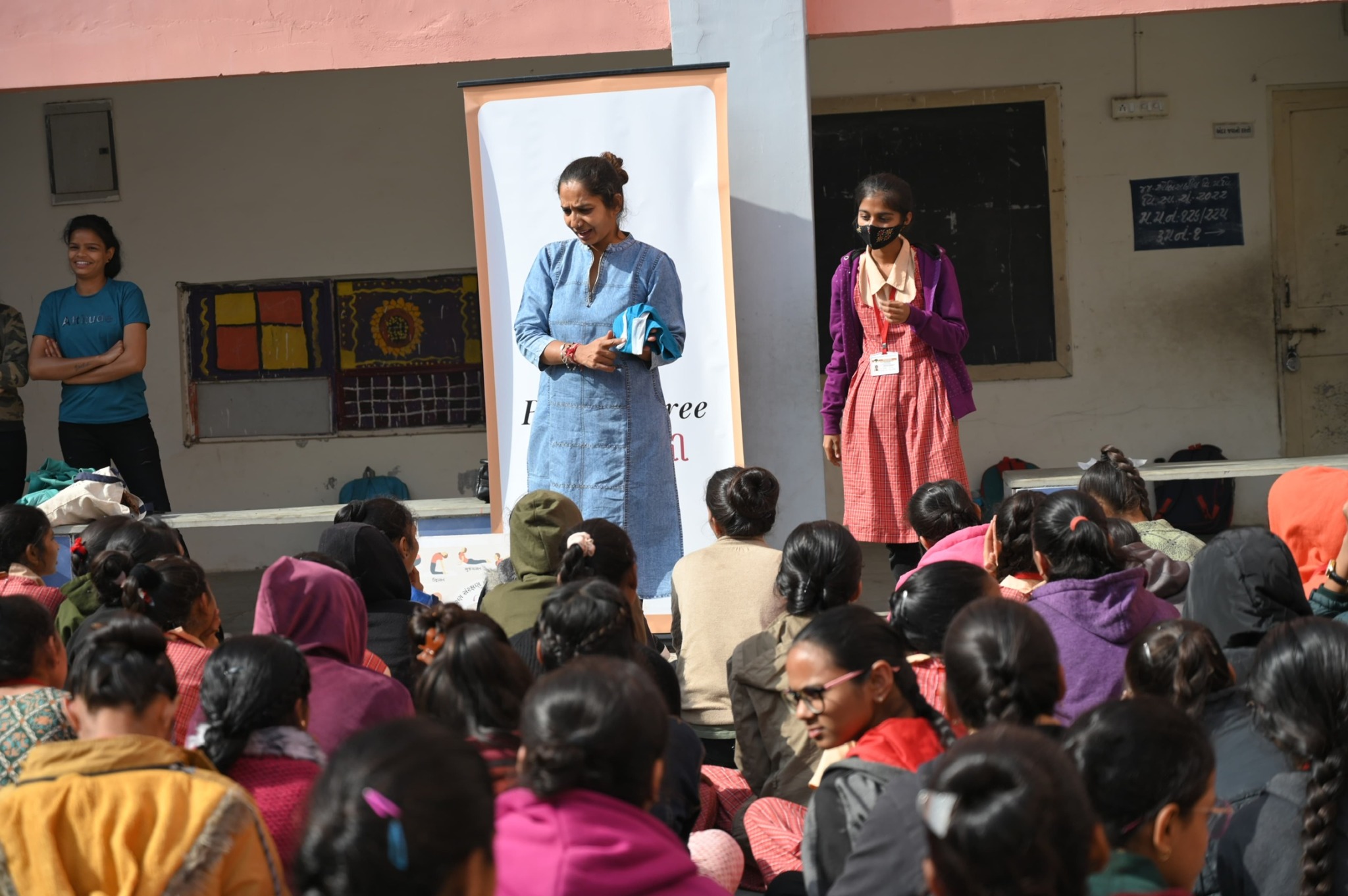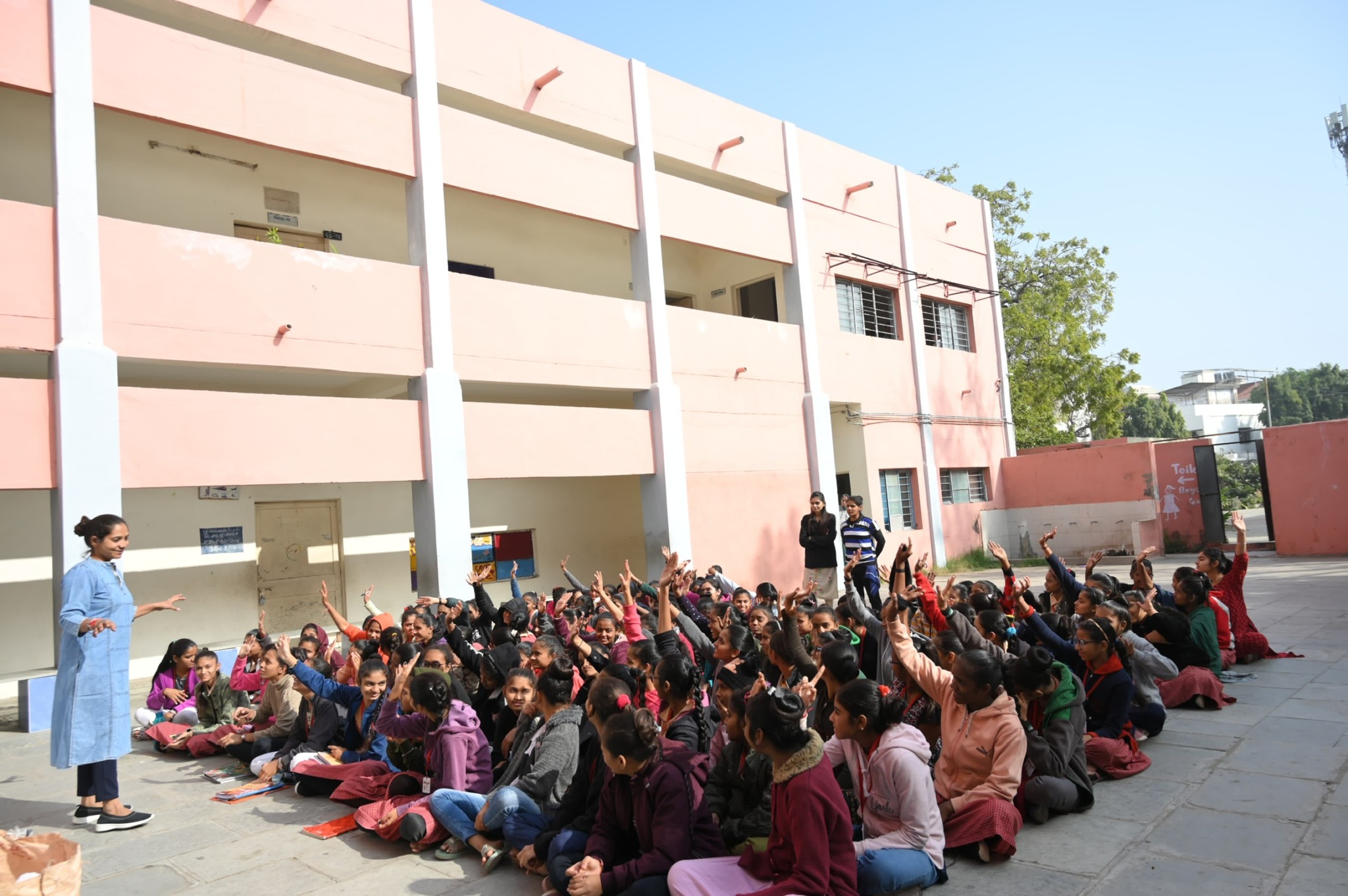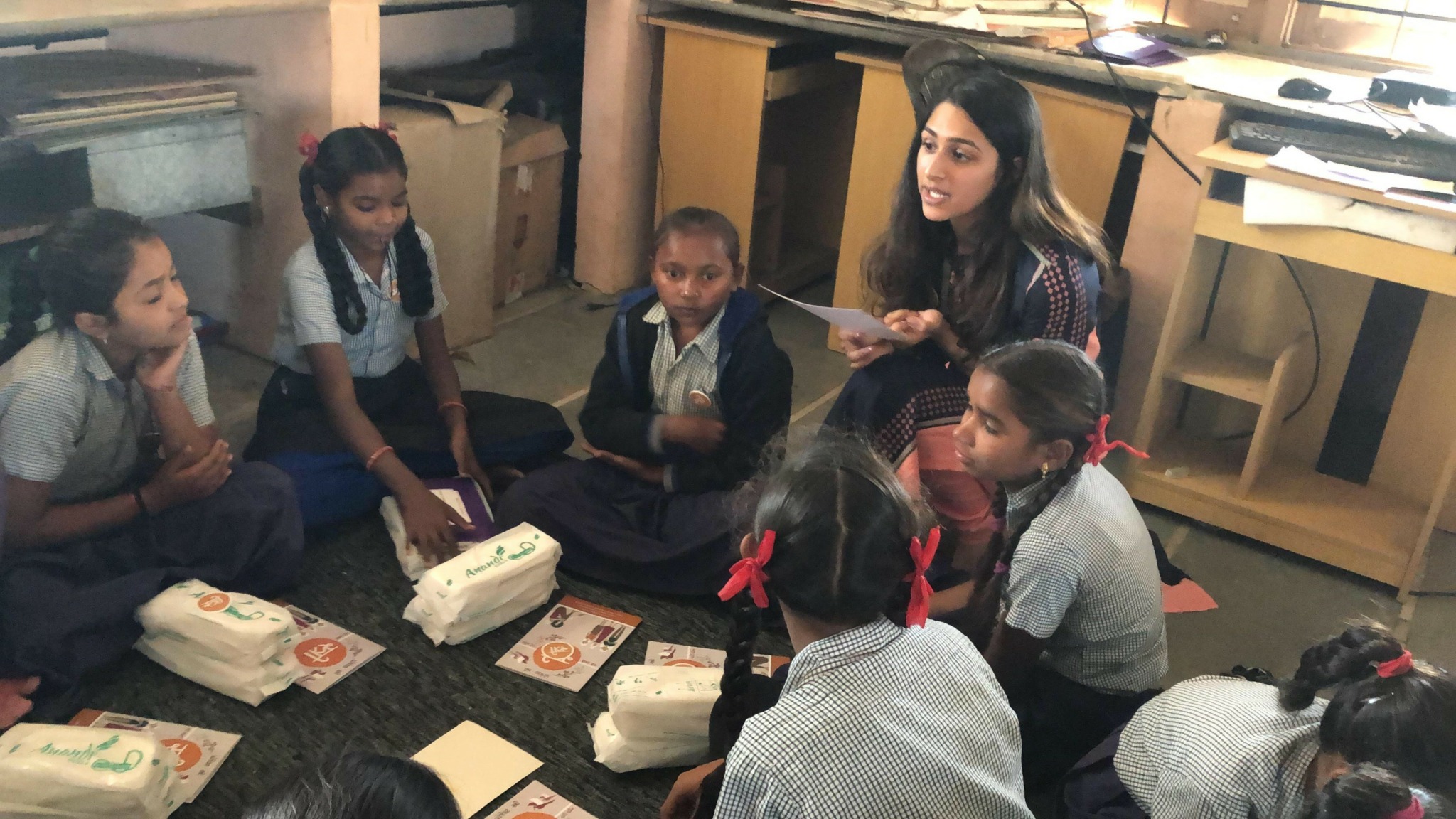We’re excited to introduce you to the always interesting and insightful Ria Soni. We hope you’ll enjoy our conversation with Ria below.
Ria, thanks for taking the time to share your stories with us today How’s you first get into your field – what was your first job in this field?
Five years ago, a friend and I were talking about our experience traveling back to Gujarat, India, where both of our families were from.
Somehow, our conversation landed on the topic of periods – Juhi grew up in India and shared how she didn’t feel comfortable changing her sanitary products in the school bathrooms, and I brought up the overbearing stigma surrounding women’s health in our culture. Since we were both interested in pursuing careers in healthcare at the time, we began discussing how we could use our resources to try to address some of these issues in this community that we felt so connected to.
We were both planning on traveling to India that December to visit family and so we decided that we wanted to do something during that trip. We began researching the issues surrounding menstruation in Gujarat and uncovered much more than we intended. We came across staggering statistics – how 71% of girls in India and had no knowledge of menstrual health until their first period. It was then that we realized that the problem was much bigger than we thought. We knew that one small visit wouldn’t address the larger issue at hand, and so we decided to create larger initiative, which eventually became Project Stree. Project Stree tackles period poverty and the menstrual stigma in Gujarat through hosting menstrual hygiene workshops and donating period products. Over the past five years, we have held 107 workshops, impacted 7320 women, and donated 14,133 period products.
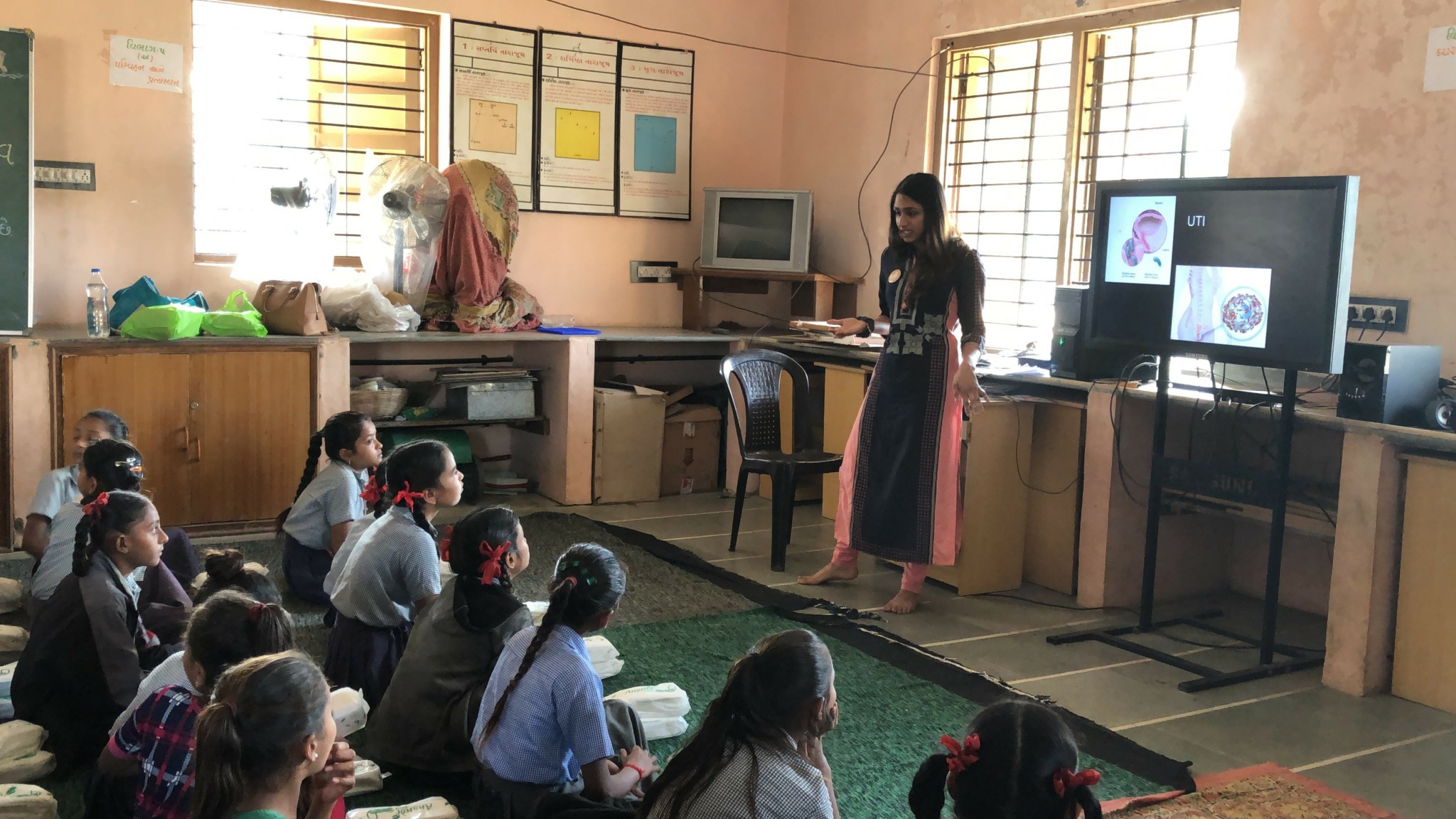
Ria, before we move on to more of these sorts of questions, can you take some time to bring our readers up to speed on you and what you do?
Five years ago, my co-founder and I embarked on a mission to tackle menstrual health and hygiene in Gujarat, India. As Indian-Americans pursuing careers in healthcare, we were profoundly affected by the challenges women face in India. Juhi’s personal experiences living in India and my frequent family visits to the subcontinent shed light on the struggles that women in rural India face accessing menstrual hygiene products. We identified a severe lack of menstrual education and resources in rural Gujarat, where taboos and limited access to sanitary products cause health problems for women. Our findings in addition to their shared experiences led us to create Project Stree, a nonprofit that aims to dismantle barriers towards menstrual health in Gujarat, India.
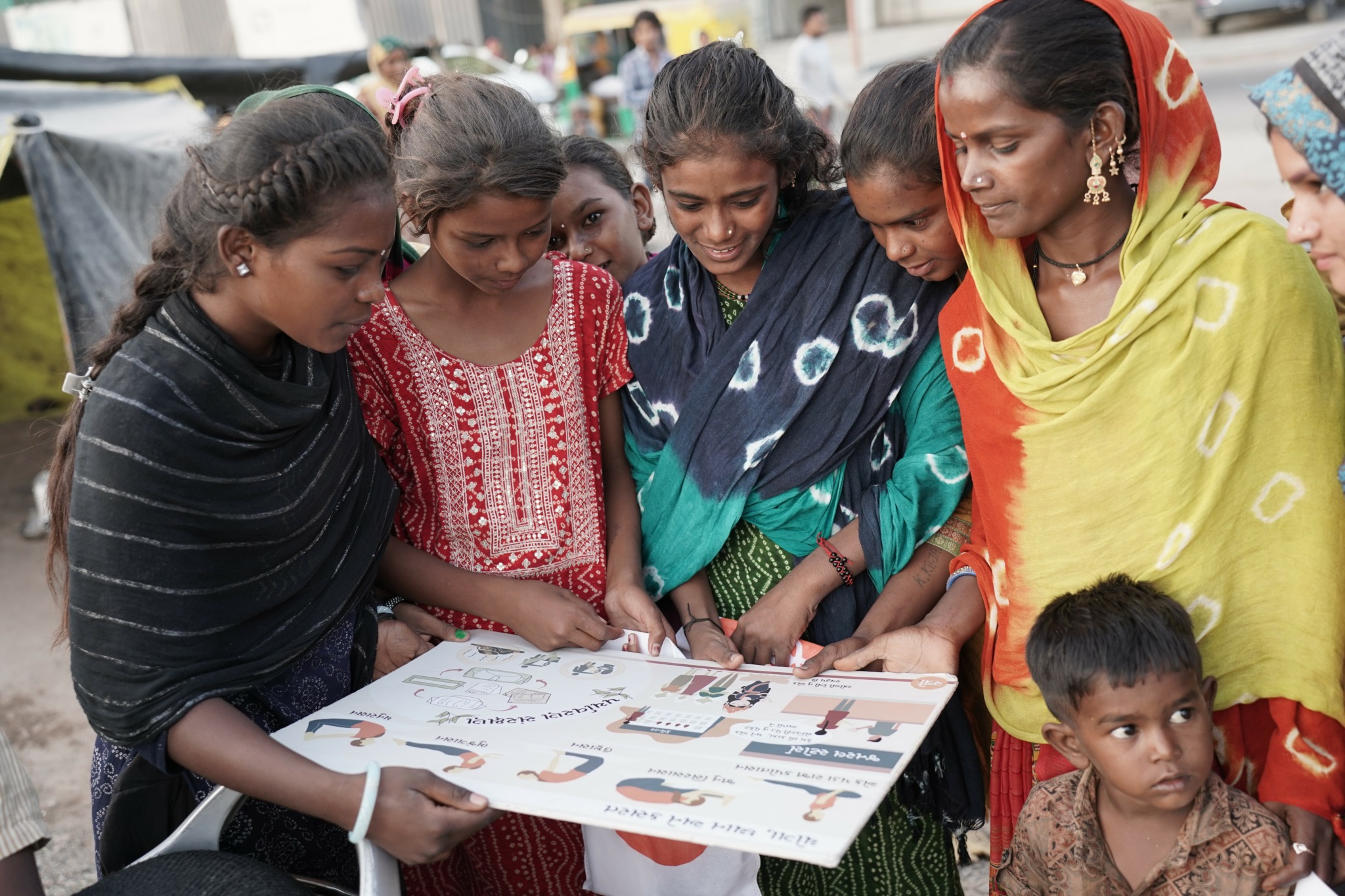
Learning and unlearning are both critical parts of growth – can you share a story of a time when you had to unlearn a lesson?
My team and I had just finished delivering our presentation on the menstrual cycle at one of Project Stree’s workshops in India. Suddenly, a man came and interrupted us, commanding us to stop. He did not think it was appropriate to discuss menstruation so publicly. My mind started racing as his words started to sink in.
We prematurely ended our workshop to prevent the situation from escalating and I went to go speak to him. At that moment, I was infuriated, how could he prevent these women from learning about their body’s natural processes? I wanted to explain why I felt menstrual education was so important, but I knew it was necessary to get some more insight into his personal viewpoint.
We took a step back and conducted a needs assessment about local attitudes about menstruation in the village and discovered that the majority shared the man’s viewpoint. At this point, I was at a crossroads. The core values of our organization were being challenged
However, this knowledge better informed our future workshop as involving the community allowed us to directly address their needs. Our subsequent workshops provided more context about menstruation to highlight its importance.
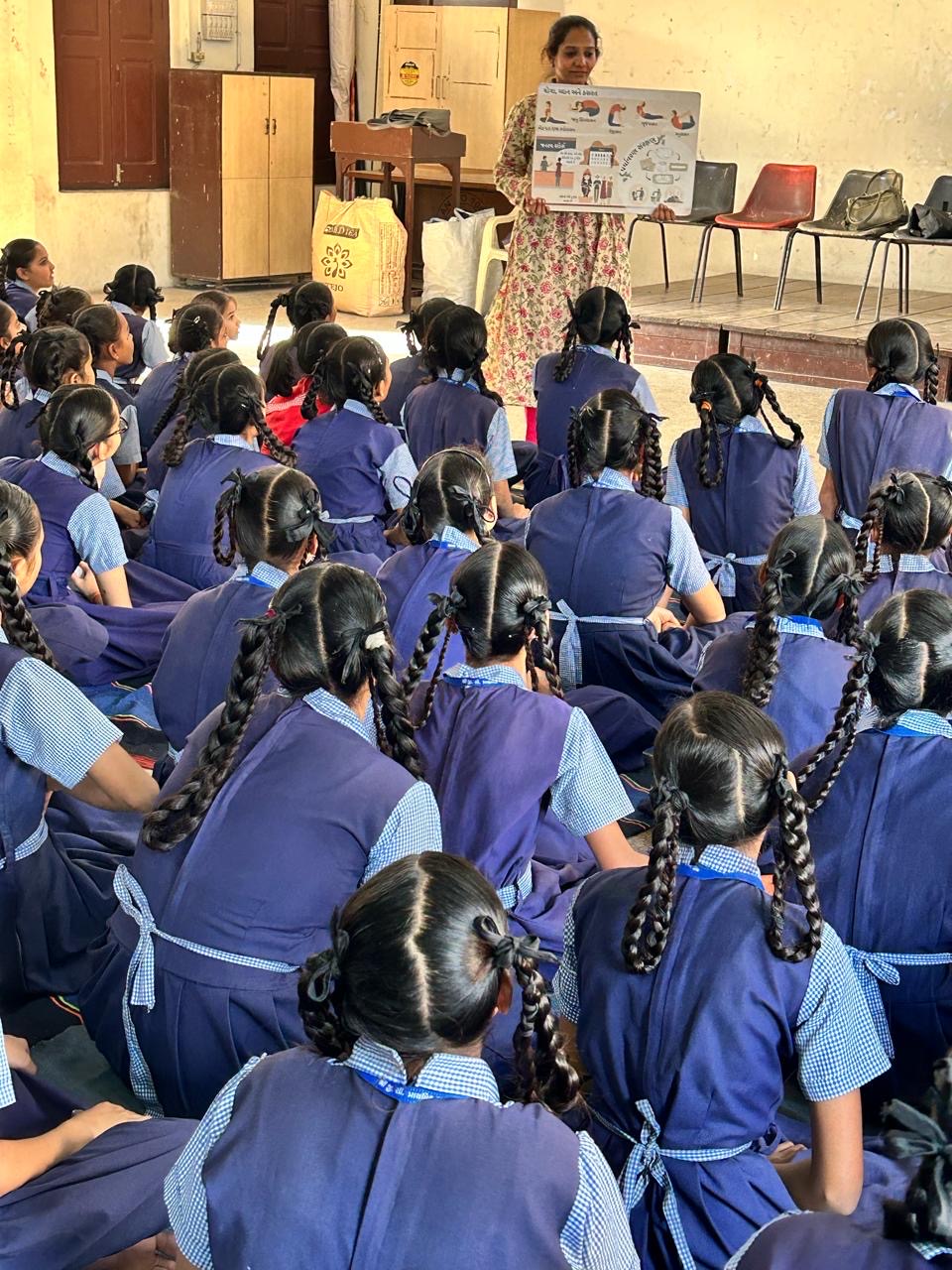
How about pivoting – can you share the story of a time you’ve had to pivot?
At Project Stree, our initial plan to achieve our mission was to hold monthly workshops in rural schools for girls approaching menarche. We had worked on developing relationships with local officials and conducted detailed research in the villages for our school-based workshops. However, since many of the schools in India were shut down during the pandemic, this was no longer possible. Nonetheless, after discussing with our team, we decided to pivot: we transitioned all of our workshops outdoors, allowing menstruators of all ages to join. During this time, many of the hard-hit villages in India were sealed off from the rest of the community to prevent the spread of the virus. This meant that the inhabitants could barely get their basic necessities like groceries, so sanitary products were out of the question. Our team decided to obtain permission from the local government and went in to provide sanitary products with the appropriate safety measures in place. Additionally, widespread lockdowns led to cases of domestic abuse to skyrocket. Thus, in honor of Sexual Assault Awareness Month in April, we held a fundraiser through Project Stree to help support a local women’s shelter in a low-income neighborhood in New Jersey.
Contact Info:
- Website: https://projectstree.org
- Instagram: @projstree
- Facebook: Project Stree
- Linkedin: Project Stree

